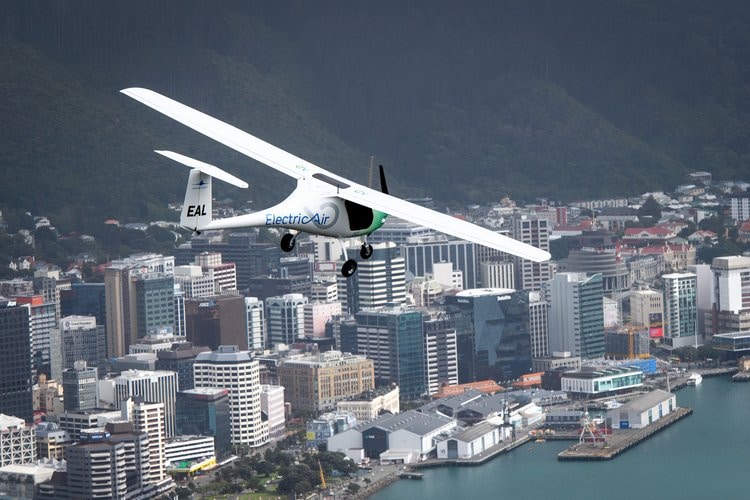ElectricAir, owner and operator of New Zealand’s first and only electric plane, has achieved a world record breaking flight across the Cook Strait in early November to mark the beginning of the United Nations COP26 Climate Change Conference in Glasgow.
It is the first time an electric plane has made the 78km flight from Omaka in Blenheim to Wellington Airport, as well as being the world’s longest flight over water by a pure electric plane.
ElectricAir founder Gary Freedman says the Cook Strait crossing is a symbolic demonstration that low-emissions aviation is here.
“This is the start of a radical change in the way we fly. Bigger, longer-range electric aircraft are on the way and are ideal for short haul routes,” Freedman says.
“To meet New Zealand’s emission reduction targets, there is a need to electrify all our transport – road, sea and air, and ElectricAir wants to pave the way and show it can be done.
“New Zealand is the perfect place for electric planes to be widely used, with one of the highest rates of short-haul flights per person of any country in the world and an electricity grid powered from predominantly renewable sources.”
To show its commitment to sustainability and 100% renewable energy generation, ElectricAir has chosen Meridian as its power provider. In addition, Meridian’s Certified Renewable Energy product means ElectricAir can report its scope 2 emissions as zero.
“We’re proud to have partnered with ElectricAir, which like Meridian understands that electrification of transport is one of the biggest ways that our country can help to combat climate change,” says Meridian’s chief customer officer, Lisa Hannifin.
Wellington Airport’s Chief Executive Steve Sanderson adds: “Electric aircraft on short-haul regional routes are key to sustainable air travel in future. We are looking forward to welcoming our first electric plane to the Capital and continuing to work with our airline partners to make sure we have the infrastructure in place to facilitate commercial electric aircraft from 2026 onwards.”
“Getting this venture off the ground would not have been possible without the support of our partners and I want to thank them for being part of this revolution to clean up our skies,” Freedman says.
